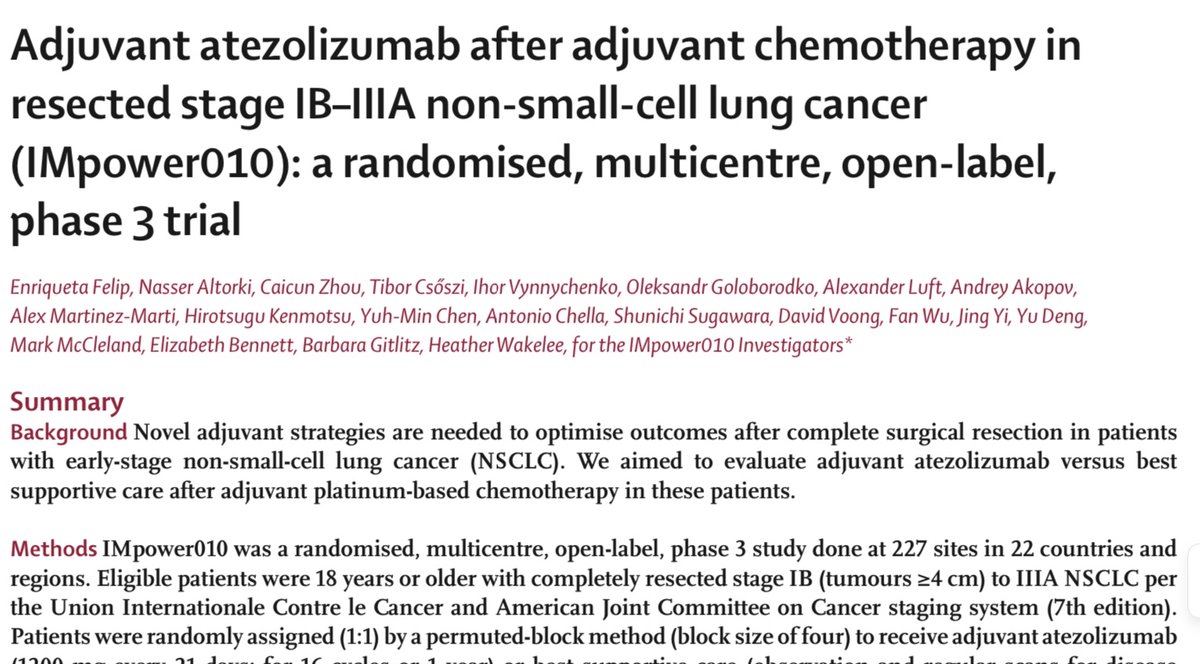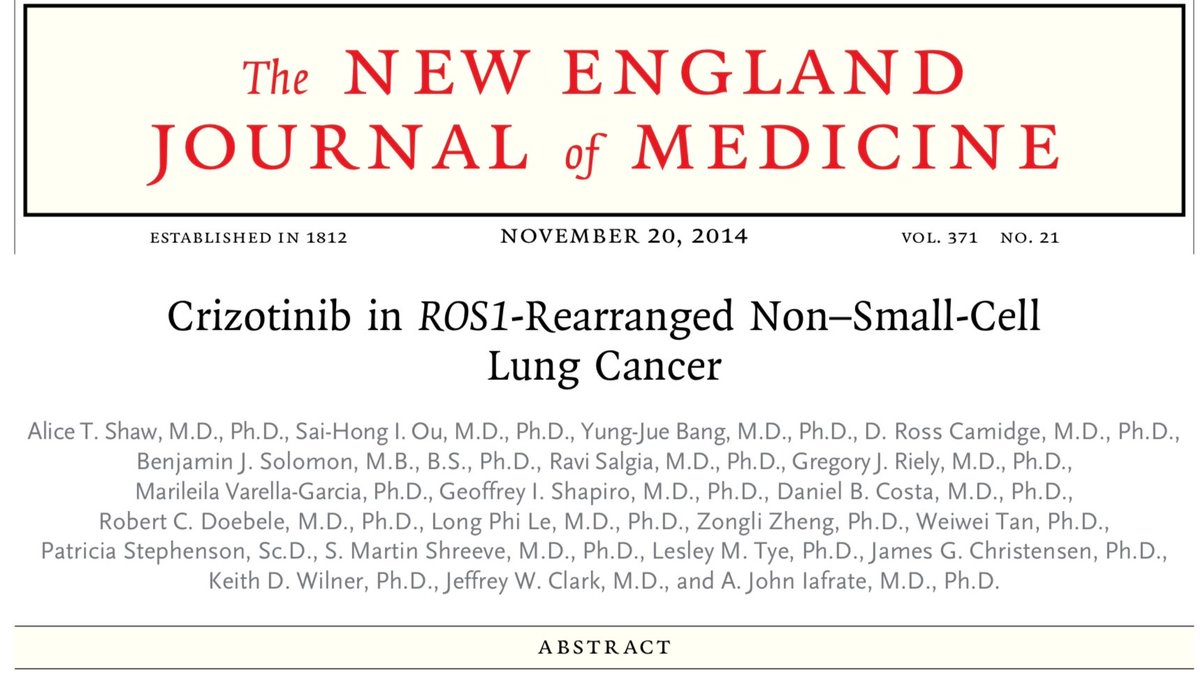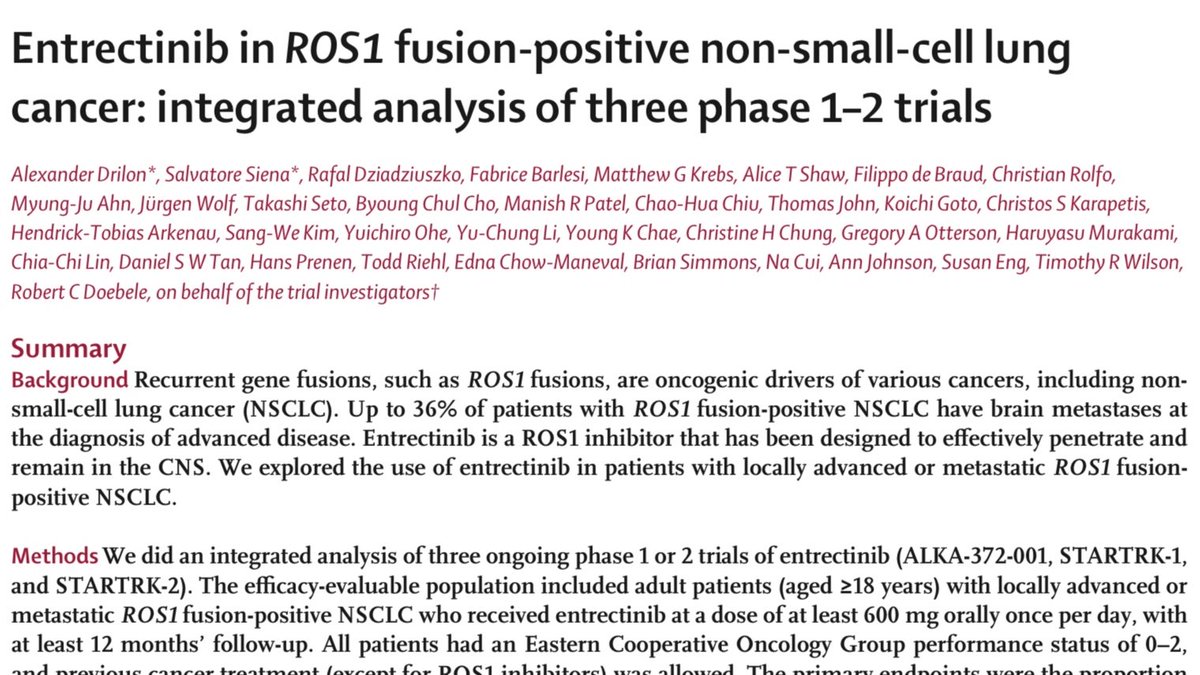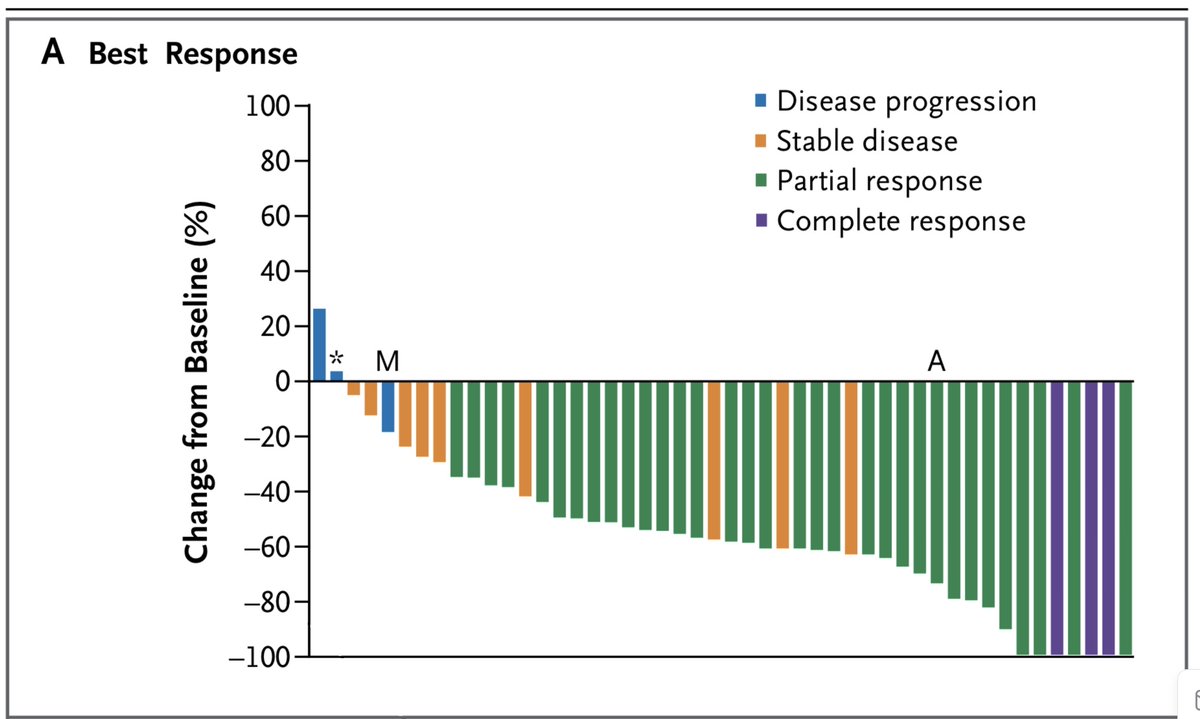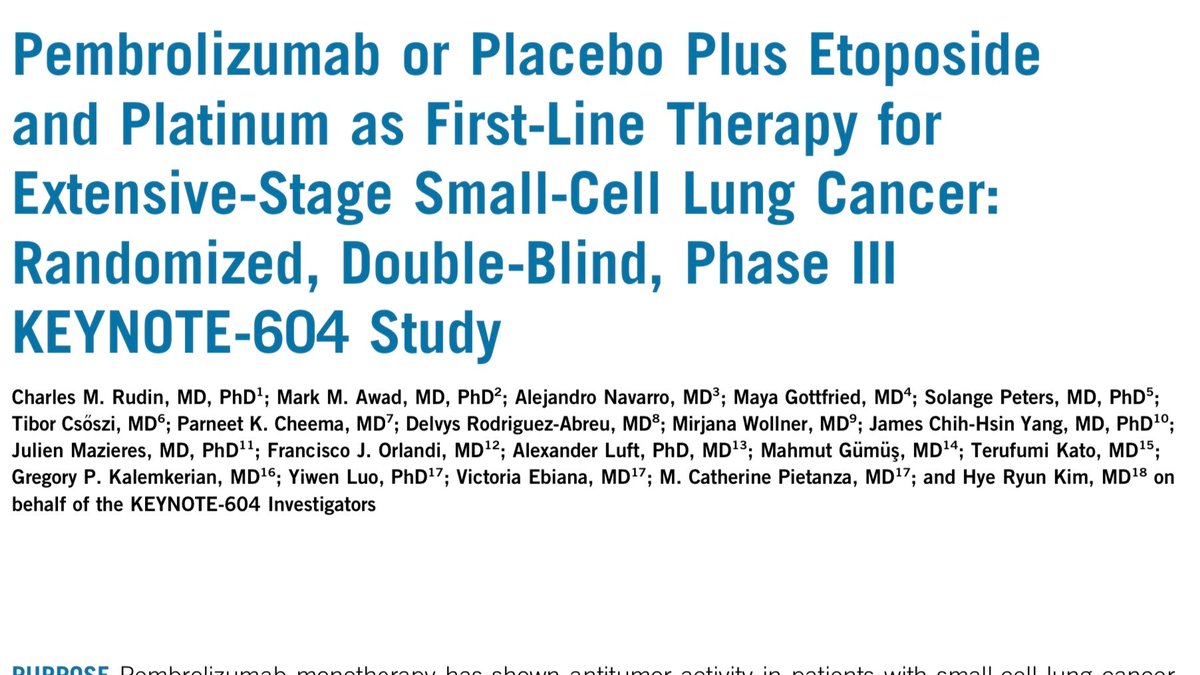23 November: ALEX and clarity
This year for Lung Cancer Awareness Month #LCAM I’m going to summarize 30 important lung cancer trials over 30 days. These posts are directed at non-medical professionals, with descriptions of the results and of what makes a good trial. 1/11 #lcsm
This year for Lung Cancer Awareness Month #LCAM I’m going to summarize 30 important lung cancer trials over 30 days. These posts are directed at non-medical professionals, with descriptions of the results and of what makes a good trial. 1/11 #lcsm

Today we’re returning to ALK-positive lung cancer. Way back on 5 November we looked at the PROFILE study that established crizotinib rather than chemotherapy as the second-line standard of care.
Today’s study compares crizotinib to a newer generation of ALK drug, alectinib. 2/11
Today’s study compares crizotinib to a newer generation of ALK drug, alectinib. 2/11

This trial enrolled 303 previously untreated people between 2014 and 2016. Primary outcome was progression-free survival, with an 80% power to detect an increase in median PFS form 10.9 to 16.8 months. Particular attention was paid to brain metastases. 3/11
The trial showed obvious improvements in PFS (HR 0.47, p<0.001). CNS progression was also decreased in the alectinib arm, in keeping with its superior penetration into the brain. 4/11 



Overall survival wasn’t significantly improved at first, likely due to crossover (53% in criz arm got another ALK drug), and to few people having died in either arm.
A subsequent paper with longer follow-up shows a survival advantage becoming apparent (HR 0.67 95% CI 0.46-0.98).

A subsequent paper with longer follow-up shows a survival advantage becoming apparent (HR 0.67 95% CI 0.46-0.98).


A similar trial in a Japanese population showed a similar result, and alectinib is the commonest first-line therapy for people with ALK positive lung cancer today (though there is also data for ceritinib, brigatinib & ensartinib). 6/11
I struggled to come up with a methodologic topic to attach to this study. The design and analysis are simple and lucid; everything is easily comprehensible with basic concepts of power, significance, hazard ratios, etc as I have discussed in these threads. 7/11
Rene Descartes was a philosopher who voiced many doubts about the reliability of our perceptions. But he acknowledged a special status for perceptions that were “clear and distinct”. I feel the same way about statistical analyses of trials. 8/11 

If a new treatment is a real advance, it does not require elaborate statistics to demonstrate its superiority. Overly complex analyses often reflect authors trying to make something out of nothing, or sponsors trying to design a trial more likely to lead to their desired result.
If you ever read a paper and feel like maybe you don’t know everything that’s going on, check online for commentary about it. There are smart people on this website discussing lung cancer trials every day. 10/11
I hope I’ll see you again tomorrow when we’ll look at a surgical trial, and make some comments about the role of the sponsor. 11/11 

• • •
Missing some Tweet in this thread? You can try to
force a refresh


